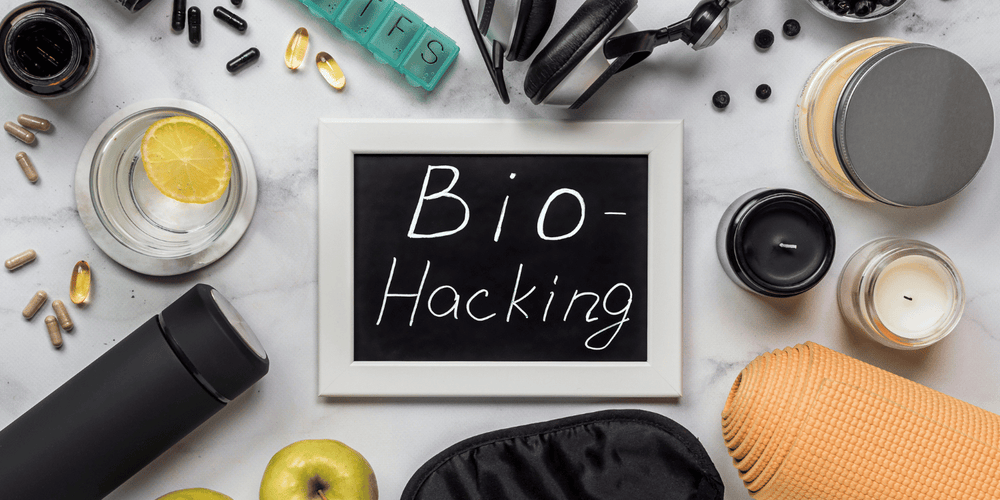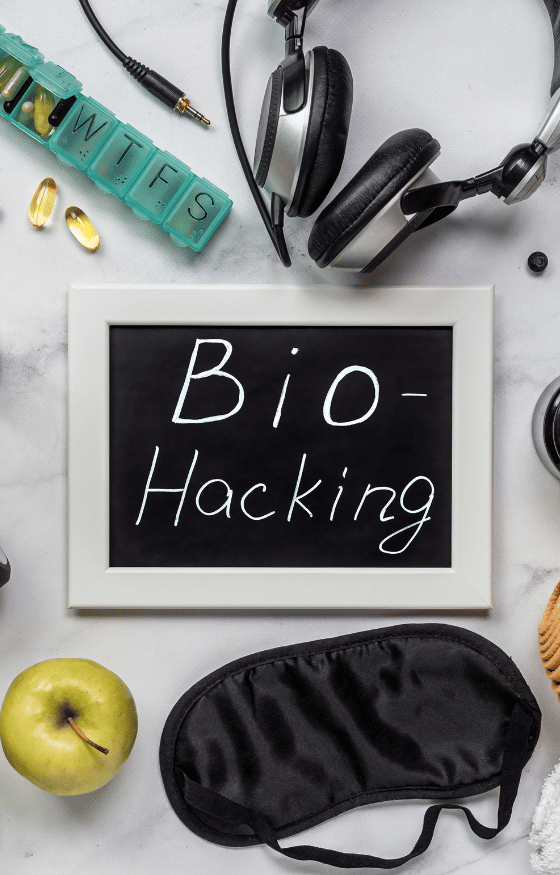Get 20% off 2 or more full priced Baxters or Wellbeing products! Add another full priced item below and a 20% discount will be applied to your overall order at checkout. That's right, 20% OFF your order!
Choose a category


Biohacking 101: Unlocking the Science of Self-Optimisation
20.08.23
Biohacking, at its core, is the quest for self-optimisation. It encompasses a range of practices and approaches that target the improvement of one's physical, mental, and even emotional state. But what does it truly mean to be a "biohacker", and how does one go about it?
We dive deep into the world of biohacking, from the gritty world of grinder biohacking to the subtle realm of nootropics.
What is Biohacking?
Biohacking, also known as DIY biology, is an umbrella term that refers to a broad spectrum of practices and endeavors where individuals seek to influence or modify their biology using a variety of techniques, tools, and substances.
Essentially, biohackers aim to "hack" their bodies' natural processes to achieve desired outcomes, whether it's enhanced mental clarity, improved physical performance, or longevity.
What are the different types of Biohacking?
Biohacking comes in many different forms. Here are some of the more popular.
1/ Nutrigenomics: This involves understanding how different foods interact with our genes. By analyzing our genetic data, one can tailor a diet that best suits their unique genetic makeup.
2/ Grinder Biohacking: This is perhaps the most extreme form. Grinders are biohackers who implant devices, magnets, and microchips into their bodies. They often do this to enhance their senses or to integrate technology directly into their bodies. For instance, some grinders implant RFID chips to open doors or make payments without traditional tools. This domain of biohacking blurs the lines between man and machine.
3/ Neurofeedback: Biohackers use this technique to train their brains. Using EEG machines, they monitor their brain activity and try to cultivate certain patterns linked to relaxation, focus, or other desired states.
4/ Nootropics: Also known as "smart drugs," these are compounds taken to enhance cognitive functions such as memory, creativity, and motivation. Some are prescription drugs, while others are available over the counter or derived from natural sources.
What's the difference between Biohacking and Biotechnology?
It's important to distinguish between biohacking and biotechnology. While both deal with the manipulation of biology, their goals and methodologies differ.
Biohacking is typically practiced by individuals or grassroots groups with the aim of self-improvement. It is often experimental, with biohackers serving as their own test subjects.
Biotechnology, on the other hand, refers to the commercial and scientific application of biology for purposes such as medicine, agriculture, and environmental management. Biotech endeavors are often more structured, regulated, and have broader societal implications.
4 Simple Ways to Biohack at Home:
Drink Caffeine: Caffeine, found in coffee and tea, can enhance alertness and cognitive function. But moderation is key, as excessive intake can lead to jitters or sleep disturbances.
Try an Elimination Diet: By removing certain foods from your diet and slowly reintroducing them, you can identify food sensitivities that may be impacting your energy, mood, or digestion.
Exposure to Blue Light: While excessive blue light at night can disrupt sleep, controlled exposure during the day, especially during morning hours, can boost mood and alertness.
Intermittent Fasting: This involves cycling between periods of eating and fasting. Some biohackers claim benefits like enhanced mental clarity, weight loss, and improved metabolic health.
Biohacking can offer certain benefits. Many methods are simple to undertake at home and can be easily undone if issues arise.
However, it's essential to tread with caution. Self-experimentation without adequate safeguards can result in unforeseen consequences.
Before altering your diet substantially, consult with a medical professional or nutritionist. Always ensure you've thoroughly researched any new substance you're considering introducing to your body.

